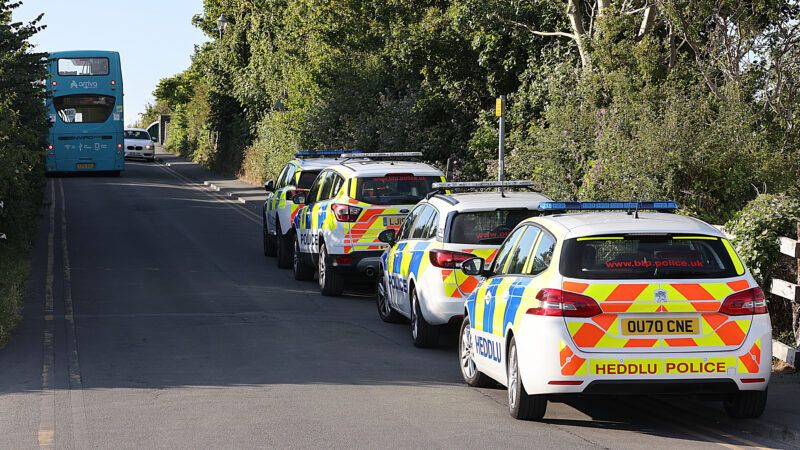Is It 'Harassment' To Heckle Your Local Politician? A British Court Thinks So.
Two protesters in Wales were convicted for handing out pamphlets and filming an argument with their member of Parliament.

A court in Cardiff convicted two Welsh protesters on Tuesday of "harassment" for causing "alarm and distress" to Alex Davies-Jones, the member of Parliament for Pontypridd and the undersecretary of state for victims.
Local citizens Ayeshah Behit and Hiba Ahmed had been out pamphleting against the war in Gaza last June when they ran into Davies-Jones on the street. They asked Davies-Jones why she abstained on a ceasefire vote—she says she was out of the country during the vote—and Behit posted a short Instagram video of the interaction, calling Davies-Jones a liar.
"It was escalating in terms of passion and intensity. We walked off in the opposite direction. We felt scared and intimidated, and we wanted to leave the situation," Davies-Jones told the court, adding that Behit and Ahmed were "shouting and bellowing down the street."
Just two hours after the video was posted, "over a dozen police officers swarmed my door and windows, with several male officers trying to climb in through open windows," Behit told the Network for Police Monitoring, a British civil libertarian nonprofit. She was let out on bail, with the condition that she refrain from posting about Davies-Jones or the case on social media.
At Tuesday's trial, Judge Paul Goldspring sentenced Behit and Ahmed to a 650 pound ($880) fine as well as 18 months parole for Behit and 12 months for Ahmed. He said that their actions went "beyond the boundaries" of free speech and were a "deliberate and sustained campaign" to get Davies-Jones to stop canvassing.
"I would love to say you are remorseful. I suspect you are not," Goldspring added. "I suspect your views will be held until something happens very differently in that area of the world."
The British idea of free speech is at odds with the democratic tradition in a lot of the world, including the United States, where political debate is supposed to be rowdy and personal. U.S. Vice President J.D. Vance gave a speech in February condemning British authorities for arresting a man who prayed outside an abortion clinic, and the U.S. State Department recently published an article pointing out that over 12,000 British citizens were arrested for online posts in 2023.
British authorities are especially sensitive about threats to politicians because of two political assassinations in recent memory. A white nationalist killed Member of Parliament Jo Cox in 2016, and an Islamic State supporter killed Member of Parliament David Amess in 2021.
But there's a big difference between threatening someone and simply making them feel uncomfortable. Ahmed claimed in court that running into Davies-Jones while pamphleting was completely unplanned, "like seeing a celebrity almost, like a unicorn in the wild." And being a celebrity means having to deal with the public—whether you like it or not.


Show Comments (9)